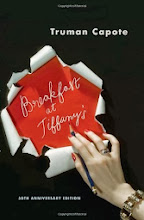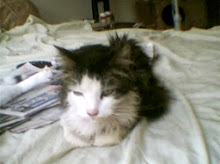Maine by
J. Courtney Sullivan
Publisher:
Knopf
ISBN: 978-0307595126
Date: June
2011
Pages: 400
Rating: 4.5 out of 5
Publisher Summary: In her best-selling debut,
Commencement, J. Courtney Sullivan explored the complicated and contradictory
landscape of female friendship. Now, in her highly anticipated second novel,
Sullivan takes us into even richer territory, introducing four unforgettable
women who have nothing in common but the fact that, like it or not, they’re
family.
For the Kellehers, Maine is a place
where children run in packs, showers are taken outdoors, and old Irish songs
are sung around a piano. Their beachfront property, won on a barroom bet after
the war, sits on three acres of sand and pine nestled between stretches of
rocky coast, with one tree bearing the initials “A.H.” At the cottage, built by
Kelleher hands, cocktail hour follows morning mass, nosy grandchildren snoop in
drawers, and decades-old grudges simmer beneath the surface.
As three generations of Kelleher
women descend on the property one summer, each brings her own hopes and fears.
Maggie is thirty-two and pregnant, waiting for the perfect moment to tell her
imperfect boyfriend the news; Ann Marie, a Kelleher by marriage, is channeling
her domestic frustration into a dollhouse obsession and an ill-advised crush;
Kathleen, the black sheep, never wanted to set foot in the cottage again; and
Alice, the matriarch at the center of it all, would trade every floorboard for
a chance to undo the events of one night, long ago.
By turns wickedly funny and achingly
sad, Maine unveils the sibling rivalry, alcoholism, social climbing, and
Catholic guilt at the center of one family, along with the abiding, often
irrational love that keeps them coming back, every summer, to Maine and to each
other.
The book opens with Alice, in her
seventies and widowed a year, back in Maine for the summer, as always. She’s boxing up most of the clothes, dishes
and other items amassed over the years.
She’s made a decision about what to do with the house, the cottage and
beach-front property when she dies. Alice
won’t tell her children about it until the paperwork’s all done and settled. She doesn’t want to hear their angry
objections, complaints and opinions.
Alice doesn’t care what the children say, anyway. It’s her property and, as far as Alice is
concerned, she’ll do what she wants with it.
Alice is a complex and fascinating
woman. Sullivan steers clear of the
typical loving, motherly matriarch and, instead creates in Alice an unhappy,
brash and opinionated woman who says what she wants regardless of the pain her
words may cause. Alice is not easy to
like, especially at first when she seems vain, self-centered and rude. As she begins to resemble a three-dimensional
real person over course of the novel , we learn more about her and her life, it’s
easier to see where she’s coming from. I
was able to understand Alice better even though I didn’t agree with much of her
behavior. I can’t say I ever really came
to like Alice but I felt empathy for her.
Alice has been heavily burdened by deep pain and guilt for most of her
life as a result of a horrible tragedy that occurred when she was a young woman. Alice,
who’s always been very religious and a faithful churchgoer, sentenced herself
to live a self-imposed penance for life.
What’s most unfortunate and I thought, very sad, is that Alice doesn’t think
about or care how her selfish decision impacts so many other people.
Kathleen, Alice’s daughter and the oldest,
was her father, Dennis’, favorite. This
irritated Alice who felt her husband spoiled Kathleen. (He did!) At a young age, Kathleen intuited that Alice wasn’t
a happy woman and didn’t particularly care to be a mother. Kathleen
is very similar to Alice in many ways. Alice wasn’t a great mother but neither was
Kathleen. Maggie, Kathleen’s daughter,
remembers her mother telling her often how she didn’t want to be a mother. I can’t imagine hearing that from my mother
while growing up! Kathleen, in middle
age, is finally happy with her life.
Still, when it comes to her family, she usually behaves like a spoiled,
selfish child. Sullivan quite
successfully shows these different aspects of Kathleen. She feels inconsequential and lacking in Alice’s
presence and bitter sarcasm and teasing becomes her defense mechanism. I often found Kathleen difficult to like or
tolerate for very long unlike Maggie who’s my favorite character. Kathleen loves her daughter but acts more like
her friend than her mother.
Maggie’s in her 30s and struggling to
figure out her life. She’s got a good
career but is insecure in her relationship with her boyfriend and desperate to
please others. Alice attributes this to
the impact of her mother, Kathleen’s alcoholism. Alice thinks Maggie’s too sweet and too interested
in other people. Alice bristles
whenever Maggie asks about her past and her relationship with Dennis and her
siblings. This, of course, hurts Maggie’s feelings. Alice prefers her daughter-in-law, Ann
Marie.
Ann Marie is married to Patrick,
Alice’s favorite child, who, in her view does everything correctly and is
wealthy. They have 3 grown children who
aren’t the “perfect people” Anne Marie tells everyone they are. Anne Marie does everything for everyone; she’s
the ultimate people pleaser with the ideal life. She’s also unhappy and feels stymied. Her thoughts belie her actions and would
shock most of the Kellehers. But the
truth scares her.
Sullivan gives us four amazing women
in this book. She successfully makes
them people we recognize in our own lives in whole or in part and therefore,
can understand and sympathize with them. But, in their dysfunction, they are
larger than life. It’s mesmerizing to
read as these women interact, often judging and criticizing one another,
constantly finding fault and never appearing to really like each other. Yet, no matter how flawed they are or how
they feel, they still take care of one another.
This book will make you smile, laugh,
cry and gasp. Hopefully, it will make you
appreciate your own family and see them in a new and different light. Sullivan took this story in a direction I
didn’t expect and I was surprised by the ending. Pleasantly surprised. I had difficulty writing this review because
I felt there’s so much to say. I
apologize if this sounds more like a book report than a review but Sullivan
created wonderful characters and a fantastic story. I highly recommend this book.





































